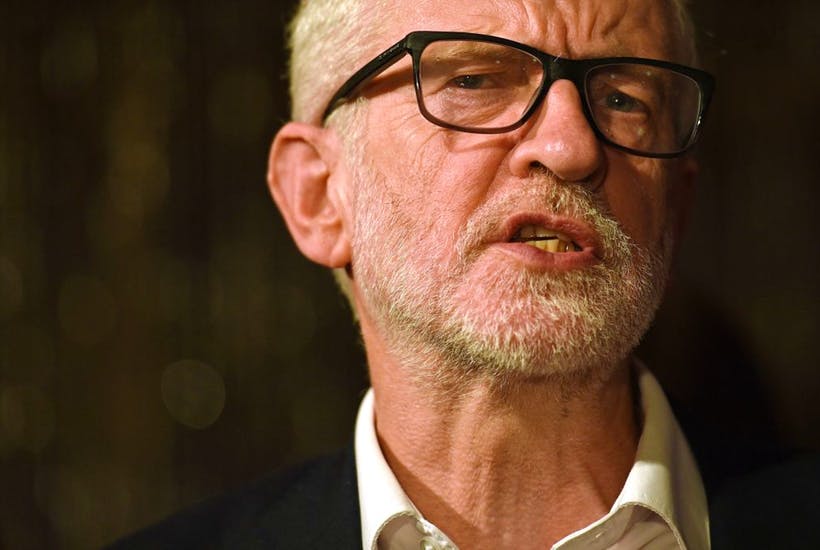Sometime around the start of this decade, before anti-Semitism was as cool as it has become, I was standing on a stage in London with a couple of rabbis and a Muslim. And if that sounds like the start of a joke then what followed wasn’t. We were there at the request of a new Jewish group to speak out against the anti-Semitism that we already saw on the rise in the UK.
I’m not much given to protests myself as long-time readers will know. But the day showed some solidarity with British Jews and we all went home at least partly feeling like some good had been done.
But one thing about the day stayed in my mind. During her remarks, one of the rabbis summoned up the famous phrase of anti-fascists in the 1930s. ‘They shall not pass’. Or ‘No Pasaran!’ as the Spanish communists had it.
I’m not wild about the Spanish connotations of that phrase. But in English it still had some utility. Not least because it was famously used by the Jewish community and their friends in 1936 when Oswald Mosley sought to march his fascists through the East End of London. When Blackshirts tried to intimidate British Jews 80 years ago, ‘They shall not pass’ meant something and was a slogan worth rallying around.
In the early 2010s, I wasn’t so sure. After most of us had drifted home from our protest I said to a friend that there was something troubling about the rabbi’s use of Cable Street and her summoning up of the spirit of 1930s anti-fascism. The question that begged to be answered in my mind was ‘Who? Who shall not pass?’
It was easy enough in 1936. The former Labour MP Oswald Mosley had by then named his movement the ‘British Union of Fascists’. They advocated for fascist policies and wore military uniforms (a last step that had helped cause the separation of Mosley’s movement from more mainstream MPs like Harold Nicholson). So in 1936 it was fairly easy to spot a fascist and anti-Semite. They were literally wearing uniforms. But if you were to say ‘They shall not pass’ in the 2010s who were you talking about then? Who were the people we were determined to hold off?
I don’t think it remotely hyperbolic to say that throughout this decade one of the answers to that question has clarified. Throughout this decade there have been many ugly, unpleasant forces bubbling away in the corners of our society. But only one has broken out to such an extent that it has taken over a major political party and now has a chance — a remote one, perhaps, but a chance nonetheless — of forming a government in the United Kingdom later this week. That is the Labour party of Jeremy Corbyn.
A huge amount has been written about Corbyn’s anti-Semitism and links to anti-Semitism. I suspect by now that minds have been made up on every side and that the people who are willing to pretend that it is all a smear campaign organized by the right-wing media have deluded themselves beyond redemption. But for me, in his lifetime of support for anti-Semitic bigots wherever in the world he could find them — a couple of irrefutable facts stand out.
One is Corbyn’s support for Samar Alami and Jawad Botmeh. The pair were convicted in the 1990s in connection with a car bomb explosion outside the Israeli Embassy in London and another against a building in London that housed a number of British Jewish charities. Not only did Corbyn run a campaign to get these two released from prison, but when they were released he acted as a character referee for at least one of them, claiming that Botmeh was a suitable person to be involved in the governance of a British university. Why would he do that? Of all the people in the prison system up and down this land, why would Corbyn have put such effort into getting a release for these two (and praising them, at that) who had been involved in the bombing of Jewish targets in London?
There are too many similar actions in Corbyn’s resume to cite here. But one other voice rings in my ears as I write this. The voice of an Israeli Jewish friend. Having not been back to the UK in some years I hear now the question he asked me as we traveled in a taxi together in Jerusalem last year. ‘You know, I thought I knew Britain, Douglas’ he said to me. ‘Good and bad, I thought I knew it. But how do you explain Jeremy Corbyn?’ This was just after the ‘wreath row’ when Jeremy Corbyn was accused of laying a wreath at the grave of the men who killed the Israeli athletes at the Munich Olympics in 1972. ‘I mean — honoring the men who killed the athletes at Munich?’ my friend went on, shaking his head in quiet amazement. ‘And this man is accepted by the British public?’
As I say, I could easily go on. Anyone could. And for those who are still inclined to vote for the Labour party on Thursday perhaps nothing can now be said. They include people who hate the Conservative party and think that they must always vote Labour for tribal reasons. And they include people who think that whatever the unpleasantness that may linger around Corbyn and McDonnell and co it can be put down as a second order of business after the priority of getting the Conservative party out of office.
Well, I would like to make another suggestion. Jeremy Corbyn will lose this election and every effort should be put into ensuring that he loses it big: that what happens on Thursday is not just a defeat, but a defeat of such crushing totality for the Labour party that it takes it years to recover. It should be such a defeat that it is not possible for a Keir Starmer or Emily Thornberry to simply pick up the reins and go back to business as usual. Other left-wing parties may emerge and flourish. But the Labour party must never be forgiven for what it has offered to the public at this election. What Corbyn has brought into the mainstream has toxified Britain and the party that allowed it to happen should be held to account.
Nor should his wider rabble of supporters simply be allowed to slip away. Instead, they should each themselves be held accountable for what they have done — as the Mosley-ites were in the Thirties. All those Labour MPs who decided to support Corbyn because he was the leader that they had. All the weird media creations who have popped up on the television day-after-day (with no identifiable credentials other than brute loyalty or loyalty to a brute). And all those columnists and ‘journalists’ of the left who pretend that they have spent their lives ‘tackling’ racism only to spend recent years campaigning for the most racist force in British politics to gain power and making Britain a pariah among the nations.
In 1936, it was a former Labour MP who had to be stood up to by the Jews of Britain and their friends. In 2019, it is the serving leader of the Labour party who has to be stood up to. It is Jeremy Corbyn who must be stood up to with those historic words: ‘They shall not pass’.
This article was originally published on The Spectator’s UK website.



















